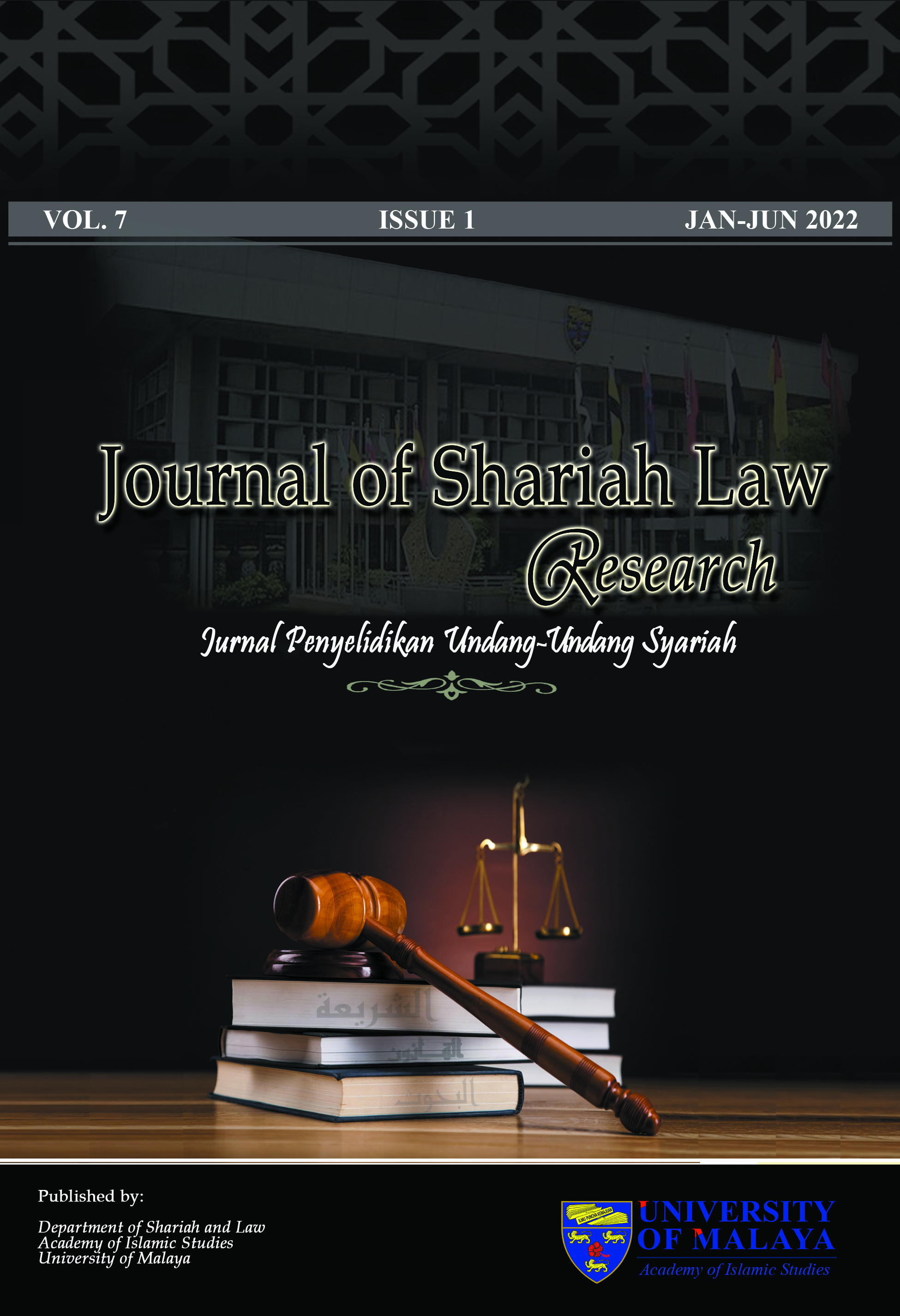AN INVESTIGATION INTO THE SPECIFIC PERFORMANCE REMEDY FOR BREACH OF CONTRACTS: A COMPARATIVE STUDY OF THE ISLAMIC IRANIAN LEGAL SYSTEM AND COMMON LAW
DOI:
https://doi.org/10.22452/jslr.vol7no1.3Keywords:
contractual damages, contractual damage compensation, remedies for contractual damages, primary remedies for contractual damages, specific performanceAbstract
Specific performance is among the legal remedies for damages caused by contractual infringement. This remedy is sometimes adopted as a “primary” remedy by different legal systems (e.g., the Iranian legal system) and sometimes as the “secondary” and “exceptional” remedy (e.g., the common law. In this respect, considering the remedy as the primary or secondary way to protect the benefits of the aggrieved parties from the breach of contract affects the coverage of the different range of damages caused to them. Therefore, one may ask why the common law uses this method as a secondary and exceptional remedy while the Iranian legal system uses it as the primary remedy for contractual damages. Accordingly, the present paper aimed to answer this question and determine a better approach for adopting this remedy using the analytical method. Overall, it was concluded that the main reason for considering this remedy as secondary and exceptional in the common law is the “loss mitigation” principle. Besides, the main reason why it is considered the primary remedy in Imami jurisprudence and the Iranian legal system is the “requirement” rule. As this remedy is considered secondary in the common law, this legal system is completely incapable of covering all contractual benefits of the aggrieved party. Therefore, the approach adopted by the Iranian legal system for the breach of contracts is better than the one adopted by the common law.
Downloads
References
Amoli, Sayyid Javad, Miftāḥ al-Karāmah fī Sharḥ al-Qawā‘id al-‘Allāmah, vol. 1. Bayrūt: Dār al-Aḥyā’ al-Turāth al-‘Arabī.
Ansari, Morteza (1411 AH). al-Makāsib al-Muḥarramah wa al-Bay wa al-Khayaryat, vol. 2. Qom: Dār al-Zakhaer.
Beatson. J, Burrows. A (2016). Cartwright Anson’s Law of Contract. England: Oxford Press.
Behjat, Muḥammad Taqī (1426 AH), Jami‘ al-Masā’il, vol. 3. Qom: Leader’s Office.
Bojnourdi, Seyed Mohammad (1401 AH). Rules of Jurisprudence, vol. 2. Qom: Orouj Institute.
Charman, Mary (2008). Contract Law. England: Willan Pub.
Clark Hare, J.I. (2003). The Law of Contracts First Print. Newgersy: Lawbook Pub.
Fuller, LL, Perdue, H. (1936). “The Reliance Interest in Contract Damages,” Yale Law Journal, vol. 1.
Helli, Allama Hassan Ibn Yusuf (1320 AH). Taḥrīr al-Aḥkām al-Mashriqiyah ‘ala Madhhāb al-Imāmiyyah, 1st Ed., Qon: Imam Sadeq Institute.
Helli, Miqdād (1404 AH). al-Tanqīḥ al-Raeh li Mukhtaṣṣar al-Sharā’i‘, vol. 1. Qom: Ayatollah Marash.
Helli, Yaḥyā Ibn Sa‘īd (1394 AH). Nozha al-Nazīr fī Jamā‘ bayn al-Ashyā’ wa al-Naẓā’ir. 1st Ed., Qom: Razi Publication.
http://lexology.com/breach of contract in Canada//01/09/2020// http://www.australiancontractlaw.com//01/09/2020//
https://uk.practicallaw.thomsonreuters.com/01/09/2022//
https://www.law.cornell.edu//01/09/2020//
Koleini, Muḥammad (1407 AH). Kāfī, vol. 5. Tehran: Dār al-Kutub al-Islāmī.
Macdonalds, Ekizabeth, Atkins, Ruth (2010). Koffman and Macdonald’s Law of Contract. England: Oxford Press.
Mckendrick, Ewan (2000). Contract Law, 4th ed. Newyork: Palgrave.
Mohaghegh Damad, Seyed Mostafa (1406 AH). Rules of Jurisprudence, vol. 1. Tehran: Islamic Sciences Publishing.
Mulcahy, Linda, College, Birkbeck (2008). Contract Law in Perspective. London: 207 Tledge-cavendish.
O, sull, Van, Janet, Hilliard, Jonathen, (2014). The Law of Contract. England: Oxford Press.
S. Davis, Panl (2018). J.C. Smith’s The Law of Contract, 2nd ed. England: Oxford Press.
Stone, Richard (2013). The Modern Law of Contract, 10th ed. London: Routtedge.
Treitel, Sir Guenter (2003). The Law of Contract, 11th ed. London: Sweet & Maxwell.
Webb, Charlie (2006). “Performance and Compensation,” Oxford Journal of Legal Studies, no 1.
Ṭūsī, Muḥammad Ibn Ḥassan (1387 AH). al-Mabsūṭ fī Fiqh al-Imāmiyyah, vol. 2. Tehran: al-Maktabah al-Mortazaviah.








